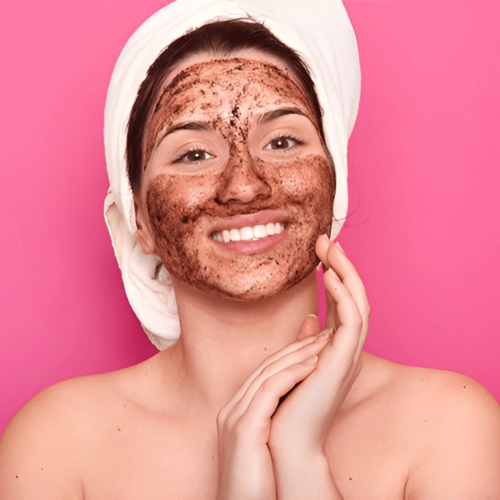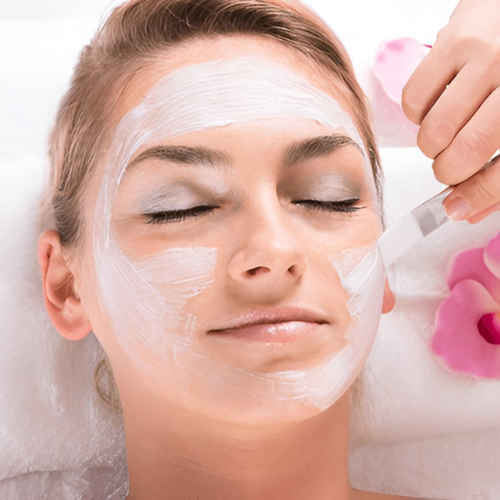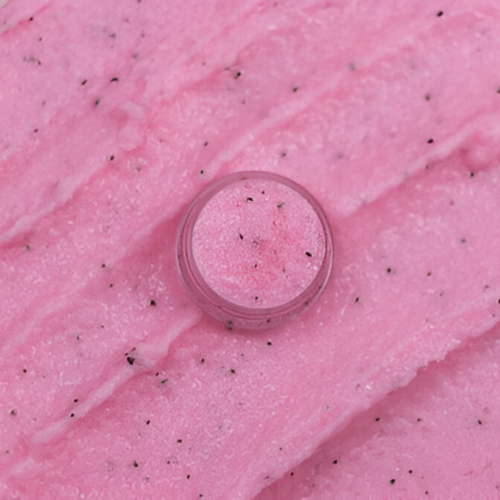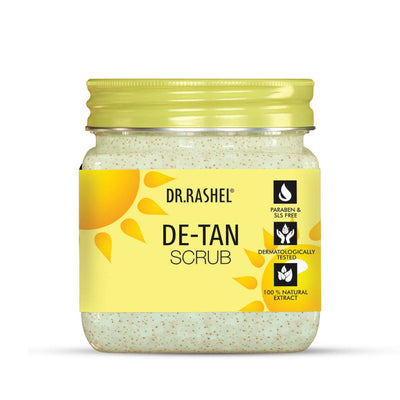_11zon.jpg)
Table of Contents
- Understanding the Difference Between Physical Scrubs vs Chemical Exfoliants
- What is Physical Scrub?
- Types of Physical Scrubs?
- What are Chemical Exfoliants?
- Types of Chemical Exfoliants?
- Difference between Physical Scrubs and Chemical Exfoliants
- Which Type of Exfoliator is Better for You?
- Pros and Cons of Using Physical and Chemical Exfoliants
- To brief it
- FAQ’s
Understanding the Difference Between Physical Scrubs vs Chemical Exfoliants
Cleansing, Exfoliating and Moisturising are in a trio bestie group. While cleansing and moisturizing remove impurities and hydrate the skin, exfoliation is the game-changer in the group. Skincare is not as good when one is missing.
Exfoliation offers several benefits for your skin. It helps to maintain its health and appearance. When it comes to exfoliating your skin, we have two main options: physical scrubs and chemical exfoliants to choose from. This without doubt, creates a sense of confusion for us. We’ll look into what physical scrubs and chemical exfoliants are, their pros and cons and help you make the right choice for your skin's needs.

What is Physical Scrub?
Physical scrub is a skincare product that contains gritty and slightly abrasive particles that help remove dead skin cells from the surface of the skin and promote a soft, refreshed glowing appearance. The common ingredients in physical scrubs are sugar, salt, ground-up nuts, coffee grounds, microbeads and other synthetic agents. To reap all the benefits of physical scrubs, it is gently massaged onto the skin in circular motions.
Types of Physical Scrubs?
Facial Scrubs
They contain finer, gentler particles like sugar or rice powder that are designed to be non-abrasive and won't irritate delicate facial skin. It helps deep clean pores and remove excess oil. It may also include moisturizing ingredients to prevent the skin from drying out.
Body Scrubs
Body scrubs are generally made of sugar, salts or coffee exfoliants. Sugar scrubs are gentle and dissolve in water, making them ideal for sensitive skin. Salt scrubs are more abrasive, making them better suited for the body’s tougher skin. Coffee scrubs have coarse texture and stimulate blood circulation and reduce the appearance of cellulite.

What are Chemical Exfoliants?
Chemical exfoliants are exfoliators that depend on chemical ingredients to scrub away the dead skin cells. They break down the bonds that hold dead skin cells together, removing them gently and effectively. They contain acids or enzymes that are ideal for sensitive skin. It addresses issues like uneven skin tone, fine lines, acne and hyperpigmentation.
Types of Chemical Exfoliants?
AHAs (Alpha hydroxy acids)
They are water-soluble acids that help remove dead skin cells and promote cell turnover. AHAs work best with dry and sensitive skin as it is derived from fruits and milk. Common AHAs include Glycolic acid, Lactic acid, Citric acid or Malic acid. They help address signs of aging, rough texture and uneven skin tone.
BHAs (Beta hydroxy acids)
They are oil-soluble acids that exfoliate the skin in order to clear out clogged pores. The most common BHA is Salicylic acid which works best with oily and acne-prone skin as it helps to reduce inflammation, control oil, and prevent breakouts. They are found more commonly in cleansers and spot treatments.
PHAs (Poly hydroxy acids)
They are similar to AHAs but have larger molecules that do not penetrate as deeply, making them gentler on the skin. This makes it ideal for people with sensitive skin or those just starting out to use chemical exfoliants. They provide gentle exfoliation, have moisturizing benefits and do not cause irritation.
Difference between Physical Scrubs and Chemical Exfoliants:
- Chemical scrubs use acids or enzymes to dissolve dead skin cells, while physical scrubs rely on grainy particles to manually remove dead skin.
- Chemical exfoliants are gentler and less abrasive, making them ideal for sensitive skin, while physical scrubs may cause irritation if used too harshly.
- Chemical exfoliators penetrate deeper into the skin, offering more effective results for skin concerns like acne, pigmentation, and aging, while physical scrubs remove surface level impurities.
Both types of exfoliants carry the risk of over-exfoliating, but chemical exfoliants tend to work more slowly and evenly, reducing the risk of damage when used correctly.

Which Type of Exfoliator is Better for You?
Which exfoliator is best for highly depends on the type of skin you have and what concerns you are trying to fight. Here's a breakdown to help you understand what will work for you:
Chemical Exfoliants are suitable for all skin types especially sensitive and acne prone skin. They are safer since there's no physical rubbing or scrubbing. Chemical exfoliants deeply penetrate pores, clearing them out of all impurities while being non-abrasive and hydrating., Using it once or twice weekly in the start proves sufficient as your skin builds up a tolerance.
Physical scrubs are convenient to use at home and are more abrasive as compared to chemical exfoliants. They get rid of impurities and temporarily minimize the appearance of large pores. When using a physical scrub for sensitive skin, opt for gentle, fine-grained scrubs that do not irritate the skin. The benefit of physical scrubs is that it is effective for getting rid of blackheads, dull complexion and also allows other skincare products to absorb better in your skin.
Pros and Cons of Using Physical and Chemical Exfoliants
|
Type of Exfoliator |
Pros |
Cons |
|
Physical Scrubs |
|
|
|
Chemical Exfoliators |
|
|
Final Note
Physical scrubs offer instant and surface-level results but can be abrasive especially for sensitive or acne-prone skin. On the other hand, chemical exfoliants provide deeper and consistent exfoliation, targeting specific skin issues like fine lines, pigmentation, and acne. Choosing between the two seems easy now that you have read the blog. Whichever one you go for, make sure to use them correctly and pay attention to how your skin reacts to it.
FAQ’s: Physical vs Chemical Exfoliants
Which is better: physical exfoliation or chemical exfoliation?
It depends on your skin type. Physical exfoliation instantly removes dead skin with scrubs or tools, while chemical exfoliation uses acids or enzymes to dissolve buildup gently and deeply. Many people benefit from chemical exfoliants for long-term results.
Do chemical exfoliants work more deeply than physical exfoliants?
Yes, chemical exfoliants penetrate into pores to break down dead cells and excess oil at a deeper level. Physical exfoliants mostly work on the skin’s surface, giving quick smoothness but not addressing clogged pores.
Which exfoliant is better for oily skin?
Chemical exfoliants with salicylic acid or glycolic acid are ideal for oily skin. They unclog pores, reduce blackheads, and control excess sebum better than scrubs.
Which exfoliant is better for dry skin?
Gentle chemical exfoliants like lactic acid or enzyme-based formulas are better for dry skin. They remove dead flakes while hydrating, unlike harsh scrubs that can make dryness worse.
Which is better for anti-aging: physical or chemical exfoliation?
Chemical exfoliants, especially AHAs like glycolic acid, are more effective for anti-aging. They boost cell turnover, fade fine lines, and improve collagen renewal, whereas physical scrubs only smooth the surface.
Should I exfoliate in the morning or at night?
Nighttime is best, as exfoliation can make skin more sensitive to the sun. Evening routines give your skin time to repair overnight and prevent UV irritation.
Can I apply makeup immediately after exfoliation?
It’s better to wait a little. Makeup can go on smoother after exfoliation, but applying it right away may clog freshly exfoliated skin. Ideally, allow at least 30 minutes and apply a soothing moisturizer first.
Do I need sunscreen after exfoliating?
Yes, Exfoliation makes your skin more vulnerable to UV rays. Always follow with a broad-spectrum sunscreen during the day to protect against sunburn and pigmentation.
Should I moisturize after exfoliating?
Yes, moisturizing is essential after exfoliation. It helps restore hydration, calm sensitivity, and lock in the benefits of exfoliation without leaving skin dry or irritated.
Are scrubs considered physical exfoliants?
Yes, scrubs with granules like sugar, salt, or walnut shell are physical exfoliants. They work by manually scrubbing away dead skin cells from the surface.
Do physical exfoliants work better for men’s skin?
Men often have thicker, oilier skin and visible buildup, so physical exfoliants may feel effective. However, chemical exfoliants can still work better long-term for unclogging pores and preventing ingrown hairs.
How should I patch test chemical exfoliants?
Apply a small amount on your inner arm or behind the ear, and wait 24 hours. If there’s no redness, itching, or burning, it’s usually safe to apply to the face.
Can exfoliation cause breakouts?
Yes, over-exfoliation can irritate the skin barrier, leading to breakouts or sensitivity. The right product and frequency will help clear pores without triggering acne.
Should I exfoliate before applying a face mask?
Yes, exfoliating before a mask helps remove buildup so the mask’s ingredients can penetrate more effectively. Just avoid using very strong exfoliants and harsh masks together to prevent irritation.







